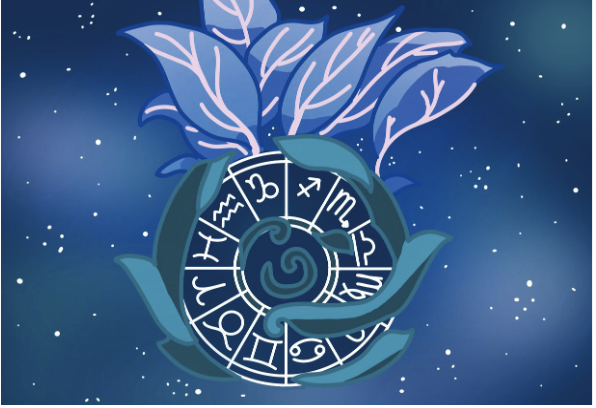By Maya Shah, Beats Editor
As someone born on Aug. 10, the Western construct of astrology claims I am confident, loyal and ambitious — typical traits assumed by fellow Leos. This distinction is based upon the fixed position of the sun, creating a strict 12-sign system that seemingly predicts a person’s personality. While Western astrology has long been the prevailing theory, it is important to recognize how it has transformed into the system that social media sites know and love today.
For many in the East, astrology has been a constant aspect of culture for thousands of years. Although the American Federation of Astrologers credits the birth of astrology to the Babylonians, Western astrology is more structurally similar to Hindu Vedic astrology. Compared to the Western structure, Vedic astrology is less fixed, based more on the current positioning of the planets in relation to the stars. As a result, the zodiacs change over time, a key aspect distinguishing it from Western astrology.
The role of astrology is much more significant in Hindu culture than in its Western counterparts. In the West, people turn to astrology to make sense of minor personal concerns — What am I like? When will something happen? Who will I meet? Contrastingly, Hindu culture uses the stars to gain spiritual awareness and help individuals fulfill their dharma, or life’s purpose. In India, these predictions are used to make major decisions anywhere from finances to government.
In light of the recent popularization of astrology in mainstream media, much of its cultural significance has been overlooked. According to the BBC, interest in astrology has seen a dramatic rise following the combination of pandemic unpredictability and increased social media use. Many Western people claim astrology as their new “culture”, comforted by the simplicity of a system that is in reality, anything but.
Western views on astrology have become oversimplified. The history of astrology is a vastly multicultural tale, yet today’s line of thought has become easily reduced to the question, “Do you believe in astrology?” These concepts are not original by design; Western astrology is a tossed salad of ingredients that have long been on the table. This system also sees influence from Greek astrology, the Chinese zodiac and more, each deeply nuanced and important to their respective cultures. To simplify this process is to erase other cultures’ vastly different experiences which impact today’s system.
As our society as a whole becomes more prone to the influence of trends through the proliferation of technology, it is important to dig a little deeper into the media we are consuming. The internet is susceptible to ignoring the cultural roots of most mainstream trends and claiming them as uniquely Western. While you do not have to conform to any one system, understanding how structures around us have developed is key to ensuring that these cultural spaces are respected in the future.
Maya Shah can be reached at [email protected].






















































































